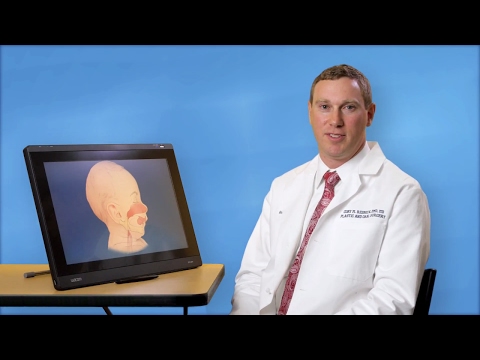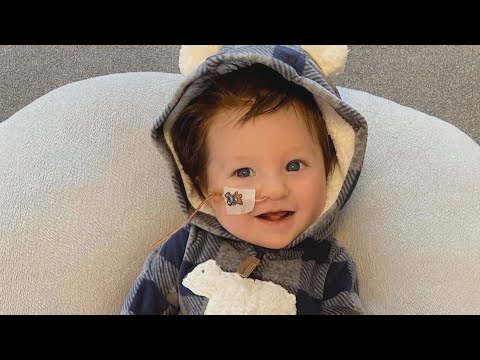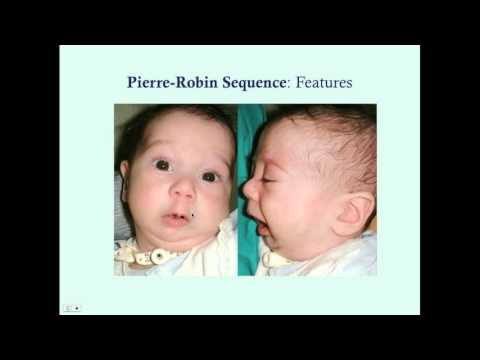Understanding Pierre Robin Syndrome (PRS) is more than just unraveling a medical mystery; it’s about recognizing the dynamic challenges individuals face every day. PRS isn’t a run-of-the-mill condition. It kicks off right from fetal development and is marked by three significant features: micrognathia (a smaller-than-normal jaw), glossoptosis (the tongue falling back, which can block the airway), and a cleft palate. Now, that’s a handful! Let’s dive deep and explore seven unique challenges faced by individuals navigating life with this syndrome.

7 Unique Challenges Faced by Individuals with Pierre Robin Syndrome

1. Feeding Difficulties
Feeding newborns with Pierre Robin Syndrome can feel like an uphill battle. The small jaw coupled with the positioning of the tongue can make traditional breastfeeding almost impossible. Families often turn to specialized feeding techniques, such as using adaptive bottles. The Haberman Feeder and Mead Johnson’s Special Needs bottle are popular choices that help overcome these challenges and enable smoother feeding experiences.
Alternative feeding methods not only allow for better nutrient intake but also help prevent further complications associated with poor feeding practices. Parents often share stories of their journeys, finding a supportive community that understands the binds of PRS. Support groups and resources have emerged to help families navigate these waters.
2. Breathing Complications
Breathing can bring some serious complications. Glossoptosis is no joke; it can lead to obstructive sleep apnea or other respiratory issues. Many who face PRS need careful monitoring to ensure they maintain clear airways. Tools like CPAP machines are often part of the nightly routine.
In more severe cases, children may require a tracheostomy, which calls for specialized pediatric care. Trust me, parents are continually learning about unreliable sleep techniques and airway management strategies. Fortunately, advancements in pediatric care make it easier to stay one step ahead of these challenges.
3. Orthodontic Challenges
The long-term dental health of individuals with PRS typically faces serious obstacles too. Conditions like malocclusion stem from micrognathia. Early orthodontic intervention is crucial. Comprehensive plans such as the Advanced Lightwire Functionals (ALF) act as guiding forces to help jaw development.
But let’s get real—these treatments require a time commitment and can drain the family wallet. The orthodontic path can feel like an Olympic training schedule, where dedication and patience become key assets for families.
4. Psychosocial Implications
It’s not just about the physical challenges; there’s a deeply personal side to PRS that we can’t ignore. Visible traits can lead to social stigma and psychological hurdles as children grow up. Support from psychologists and social workers plays a significant role.
Families often find solace in therapy sessions that build coping strategies and enhance self-esteem. The power of community becomes incredibly meaningful as support groups allow individuals to share experiences, which can lead to valuable sources of encouragement.
5. Specialized Surgical Interventions
Surgery becomes an inevitable part of life for many with PRS. Multiple surgeries are often required to tackle issues like cleft palate repair or jaw advancement. Techniques such as Distraction Osteogenesis are among the leading methods to correct these anatomical issues.
Yet, the emotional and physical stress tied to these interventions is real. Families juggle countless appointments while working to ensure their loved ones receive the best care. The importance of a committed, multi-disciplinary health team cannot be stressed enough, as collaboration leads to improved outcomes.
6. Speech and Language Therapy
Speech delays show up quite often among those with Pierre Robin Syndrome. Luckily, early intervention programs emphasizing speech therapy can make worlds of difference. Techniques and strategies from professionals, like those at the American Speech-Language-Hearing Association (ASHA), provide invaluable resources.
Effective communication opens doors. Families often note how vital speech therapy is in not just their child’s development, but overall quality of life. As individuals gain articulation skills, their confidence and social interactions significantly improve.
7. Comorbid Psychological Conditions
Research indicates that individuals with congenital syndromes, such as PRS, are not immune to psychological challenges. Charles Bonnet Syndrome, a condition where visual hallucinations occur due to sight loss, has been linked to PRS. Anxiety and depression can often tag along too.
Recognizing and addressing these psychological aspects is a must. Holistic treatment approaches are essential to combat not just the physical, but also the mental impacts of living with PRS. Mental health professionals are a critical part of the care team, working towards a balanced approach.

Staying Informed: The Intersection of Pierre Robin Syndrome and Other Disorders
PRS interacts with an array of conditions that can complicate healthcare further. For instance, individuals with WPW Syndrome face heart complications that alter treatment plans and daily activities. Grasping these connections helps define a comprehensive treatment strategy that promotes better health outcomes.
Emerging research even discusses the Zkittlez strain of cannabis for its potential to ease underlying pain or chronic stress associated with managing Pierre Robin Syndrome and its comorbidities. As with any treatment, it’s crucial for individuals to consult healthcare providers to ensure safety and effectiveness before venturing down that road.

Comprehensive Care: A Multidisciplinary Approach
Addressing the intricacies of Pierre Robin Syndrome isn’t a solo mission. It calls for a collective effort from various specialists, including pediatricians, orthodontists, speech therapists, and mental health professionals. Their collaborative efforts in creating tailored care plans focus on managing PRS while striving for overall well-being for affected individuals.
Telemedicine and personalized therapies are new frontiers in healthcare delivery. Progress is evident in genetics and syndromic disorders, which provide families with options and hope. A nurturing, informed environment is crucial for those living with PRS. With comprehensive care at the forefront, we can navigate the path of progress together.
By recognizing and addressing the unique challenges faced by individuals with Pierre Robin Syndrome, we contribute to meaningful advancements in clinical and personal life aspects. Let’s drive awareness, support families, and champion for better health outcomes, paving the way for an empowered future in the face of challenges.

Pierre Robin Syndrome: Fun Facts and Trivia
The Basics of Pierre Robin Syndrome
Pierre Robin Syndrome (PRS) is more than just a medical term; it’s a condition that poses unique challenges for those affected. Typically characterized by a smaller jaw and a cleft palate, this syndrome can lead to issues like breathing problems and difficulties with feeding. Did you know that PRS is sometimes linked with other genetic disorders? It’s true! In many cases, it appears as part of a larger spectrum of syndromes that can influence a person’s overall health. Speaking of health, if you’re curious about understanding health markers, take a look at this guide on How much crp level Is dangerous.
Historical Insights and Interesting Tidbits
PRS was first described in 1923 by French physician Pierre Robin, but interestingly, the challenges faced by individuals with this condition have been acknowledged for centuries. As people have adapted to the demands of life with PRS, they’ve found unique strategies for thriving. For instance, some families have shared their experiences publicly, making it easier for others to learn and find community support. It’s something to think about, like how communities rally around financial institutions like the Arizona Central credit union to offer local support. It’s all about coming together, right?
Support and Resources
Finding resources for managing PRS can feel overwhelming, but there’s a wealth of information available. From medical professionals specializing in cleft palates to support groups, the network can be extensive. And if you ever get a chance to hear inspiring stories from those who’ve conquered challenges, Ted talk success Secrets could offer a treasure trove of motivation. Moreover, diving into the innovative therapies can shed light on health topics, similar to exploring how amphetamine Dextroamphetamine plays a role in treating certain conditions. So, if you’re looking for ways to engage or learn more, don’t hesitate to explore your options!



























